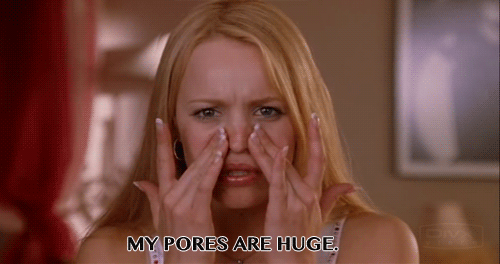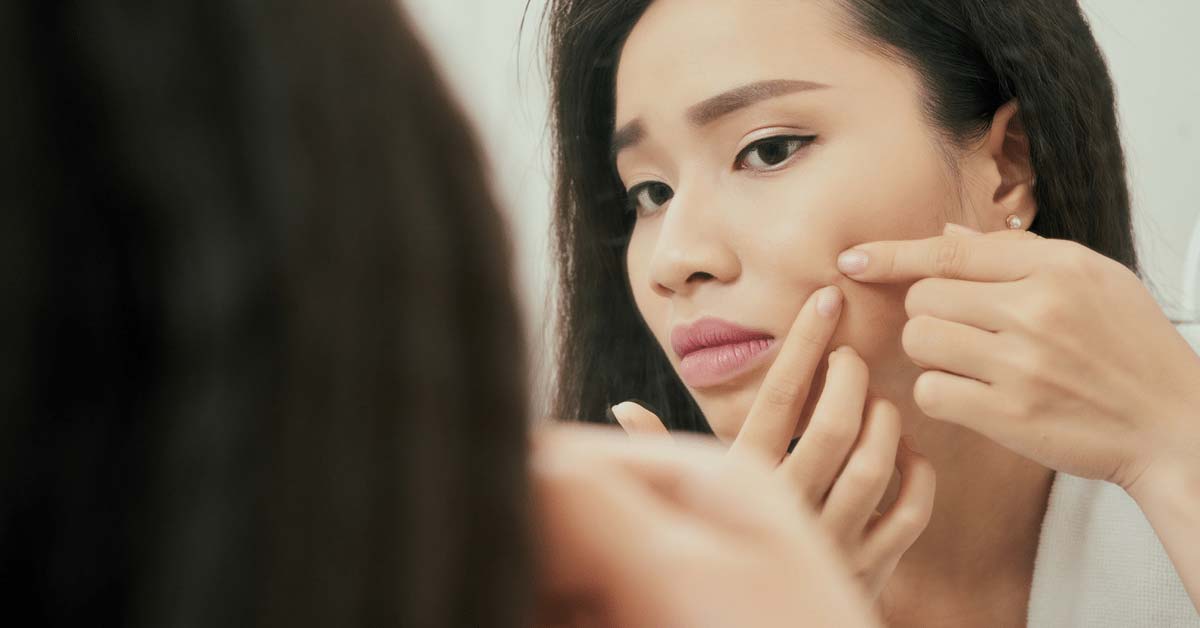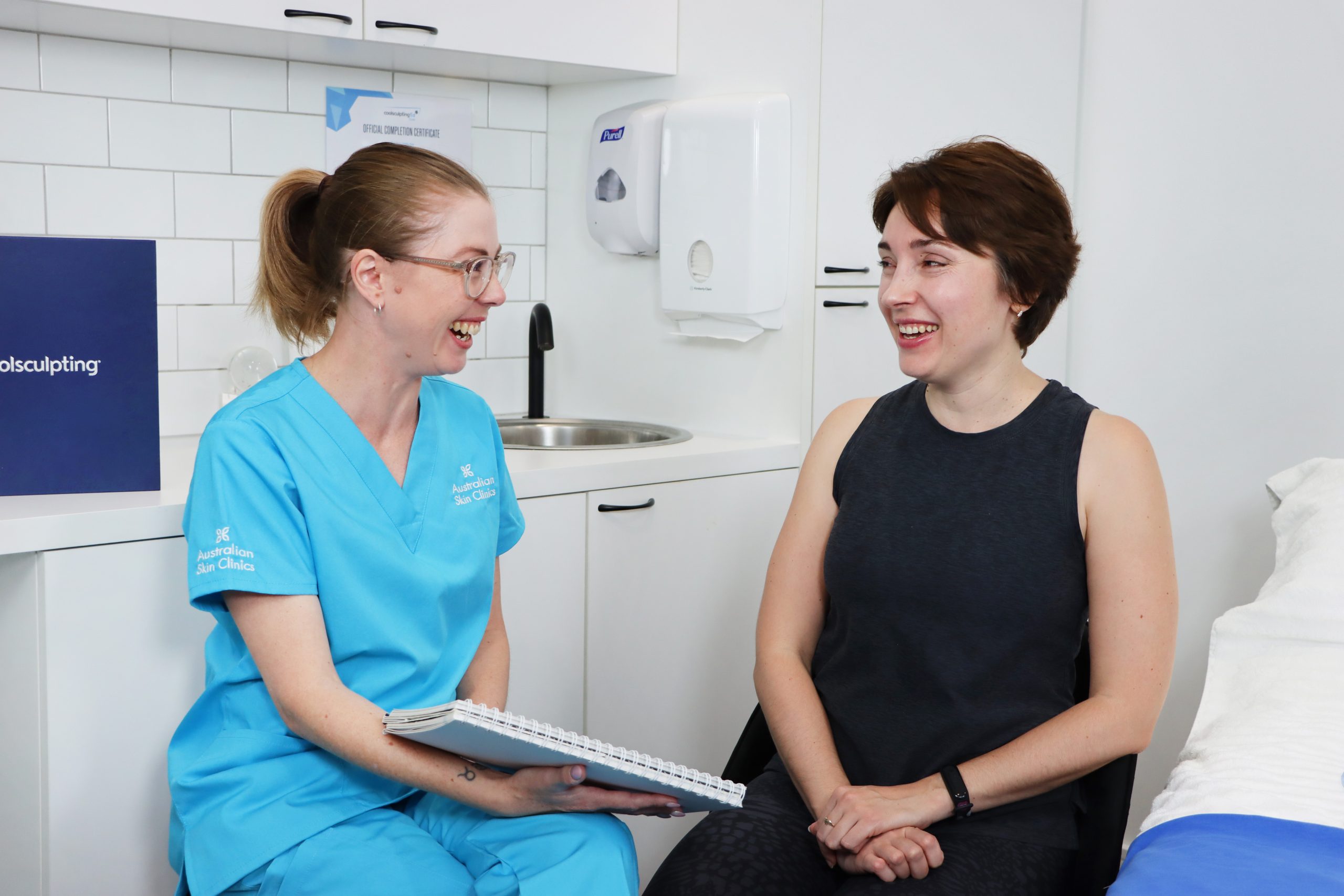Over-Exfoliating
It’s true that exfoliating is a necessary part of your skin care regime, but did you know there is such a thing as over-exfoliating? Exfoliating too often, or with incorrect products for your skin type, can lead to premature removal of healthy skin cells. This can weaken your skin’s natural barrier function and open the doors to inflammation, dryness and other irritations.
If you are of normal skin type, it’s likely that exfoliating every day is causing more harm than good. In saying this, your exfoliation regime will depend on three things: your skin type, skin condition and the products you use. A trained dermal technician can assess these factors and recommend an optimal routine for your needs and desired results.
Substituting Makeup for Sunscreen
It takes one whole teaspoon of foundation just to get the full SPF coverage as labelled on the bottle. That’s a LOT of makeup. We’re going to take a guess and say that most of you aren’t rocking that much product, especially during the day. This is why it is imperative to wear sunscreen under your foundation.
Many younger gals and guys don’t realise the impact sun damage can have on their skin and appearance, as it often doesn’t rear its ugly head until later in life. But heed your dermal tech’s warning: sunscreen under your makeup now will save your skin much suffering in the future! Be sure to let your sunscreen dry before applying other products, and don’t skip your ears, neck, décolletage and arms. We recommend Balense UV Defiance SPF 50+ for superior coverage that is paraben-free and compatible with makeup.

Using At-Home Pore Strips
While they might be weirdly satisfying, pore strips can in fact cause damage to your skin in more ways than one. Most notably, they strip the skin it of natural oils, making your pores vulnerable and prone to irritation. This then leads to problems such as blemishes and pustules (build-up of pus under the skin). Plus, they’re just plain painful! A monthly microdermabrasion is much more effective at removing dirt and debris from the skin, and will leave you with a smoother, brighter complexion.

Using Petroleum-Based Products
We’re not going to name names, but there are certain products that claim to reduce the appearance of scars and stretch marks that simply do not live up to the hype! Not only do they not provide visible results, but the ingredient list is more than dubious.
“Mineral Oil” is often the main ingredient, which doesn’t sound too sinister, until you learn it’s actually a byproduct of petroleum (yup, like the stuff you fuel your car with). It has been deemed unsuitable for use in lotions and other cosmetic products, as it creates a film of oil that is difficult for the skin to absorb. This can clog pores, reduce breathability and slow your skin’s capacity to eliminate toxins.
Picking or Popping Pimples
Ask any dermal tech and they’ll tell you straight up: stop picking or popping your pimples if you want clear skin! By squeezing that whitehead, you unintentionally force bacteria and other debris deeper into the follicle, often spreading the infected material into the surrounding skin. What’s worse, picking your acne can result in pitted scarring and post-inflammatory hyperpigmentation (dark spots) once the skin heals.
Luckily, there are steps you can take to fight pimples, starting with Balense Spot Control Serum. Combining pore cleaning, exfoliation, anti-bacteria, water delivery and skin calming actives, Balense Spot Control Serum delivers visible results, fast!

Sleeping in Makeup
Sometimes the last thing you want to do after a long day (or a big night) is cleanse your face before crawling into bed. But falling asleep with a full face of makeup is a big no-no! While we sleep, our skin naturally sheds and restores. If your pores and oil glands are clogged with makeup, the process is disrupted and can lead to blackheads, acne, inflamed pores, dull complexion and general skin irritation. Simply cleansing your face before bed will allow your skin to repair itself and stimulate your body’s own anti-ageing processes.
Not Cleansing in the Morning
Now we know what you’re thinking: you just told me to wash my face before bed, so why do I have to wash it again in the morning? Because as we discovered, while you were sleeping, your skin was shedding and repairing. This means you have eight hours of dead skin cells and excess sebum collected on the skin. The solution is a quick cleanse with Balense Next Generation SRC Cleanser, before rinsing and moisturising.
Not Changing Your Pillowcase Regularly
You might not realise it, but your pillowcase could be contributing to breakouts, acne, allergies and oily skin. Over time, your sheets, pillowcases and other bedding collect dead skin cells, dust mites and bacteria that can transfer onto your skin at night. Dermal technicians recommend changing your pillowcase once a week for normal skin, and up to twice a week or more for those who suffer from acne or oiliness. Another tip is to avoid going to bed with wet hair, as repeated exposure to moisture could lead to mold growing within your pillow…. Talk about icky!

If you’ve taken all this advice on board and are still experiencing acne, pimples, oily skin, irritations or regular breakouts – you could benefit from a personalised acne management plan. Prescribed by our experienced dermal technicians, Australian Skin Clinics Balense Acne Program has an 80 per cent success rate in reducing the appearance and occurrence of acne.









